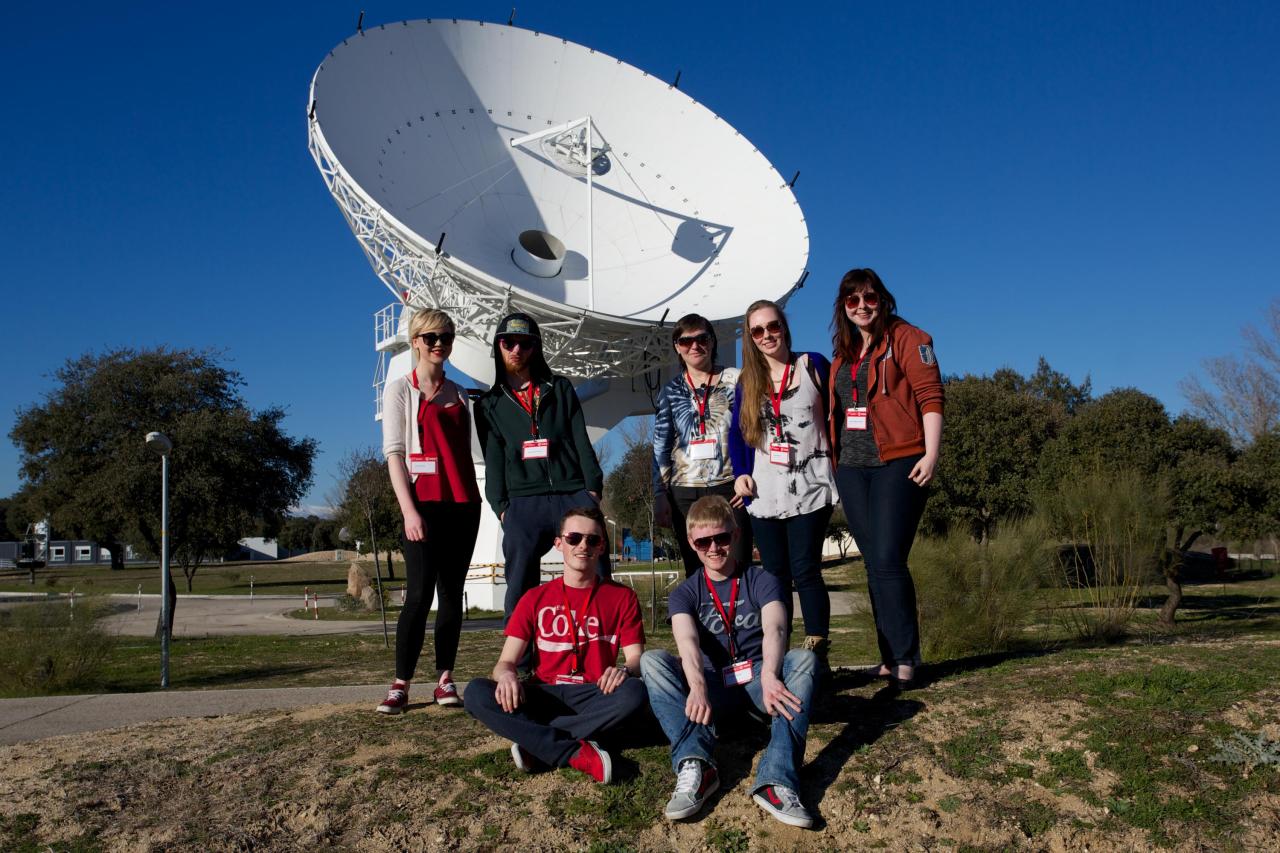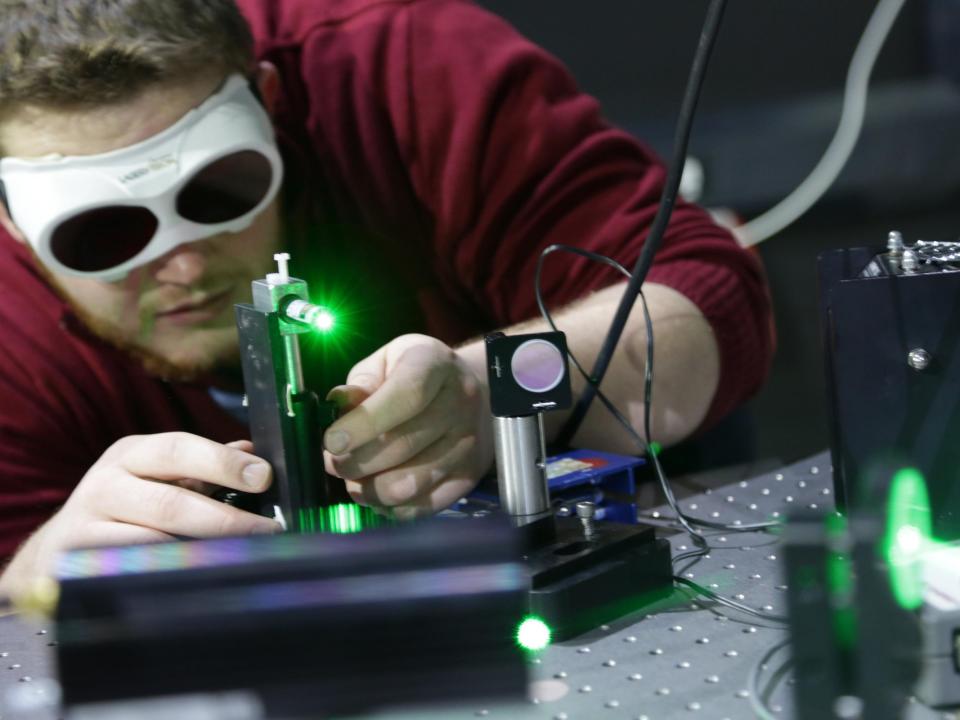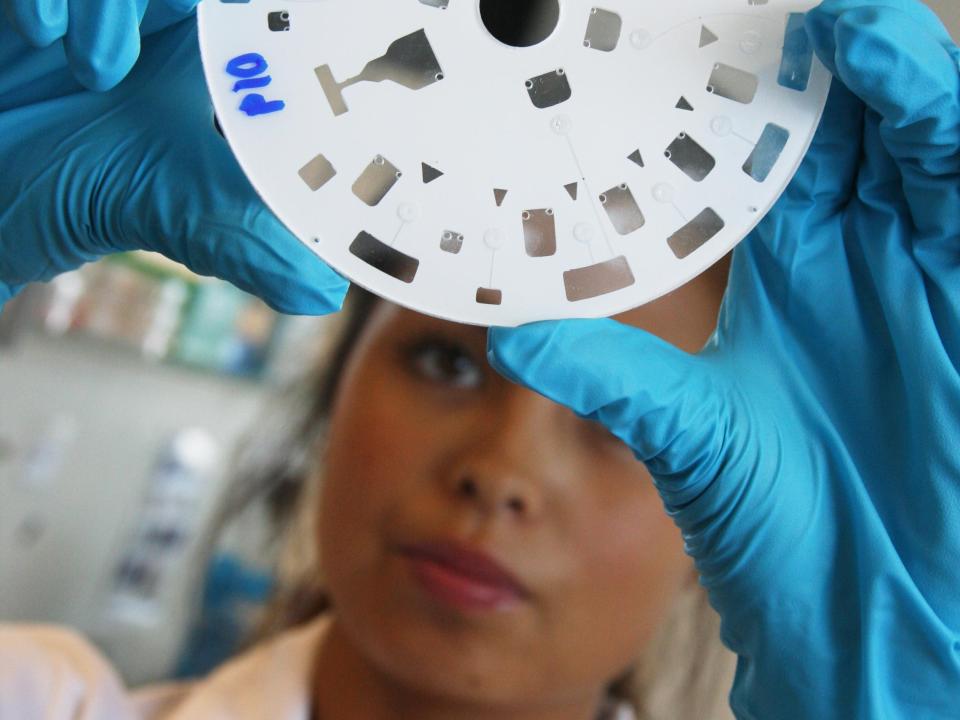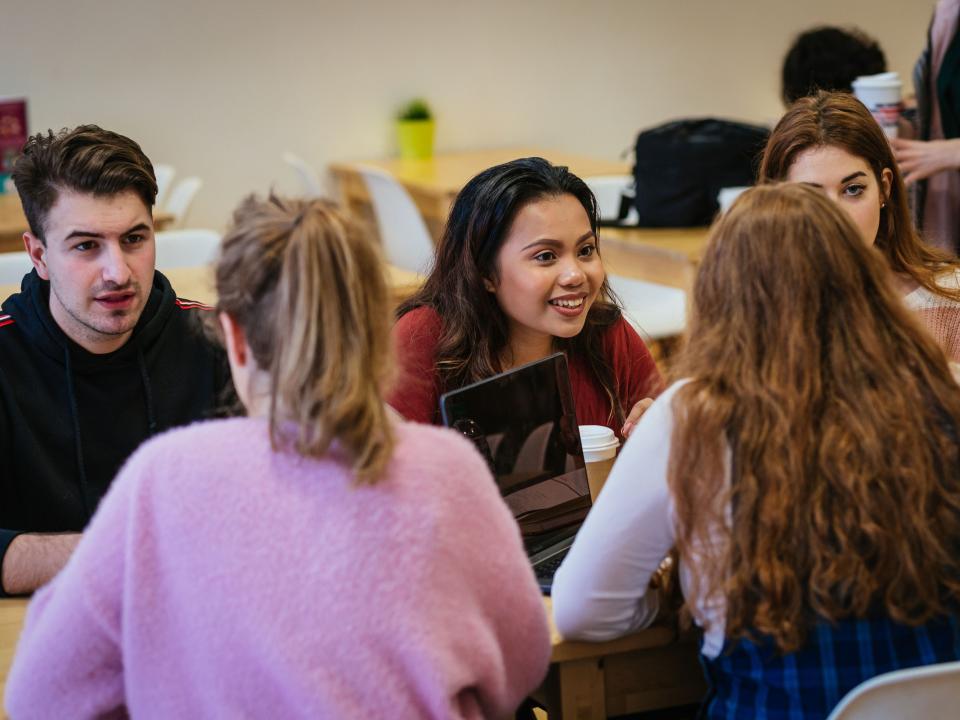Overview
It’s all about how physics can help to answer the puzzles of the universe. Astronomy is the oldest of the sciences, but you’ll discover how it’s evolving incredibly quickly in the 21st century, with more and more sensitive instruments yielding more and better data.
By the time you graduate, you’ll know the latest techniques used to observe the sky at different energies, and why multi-wavelength observations are crucial to understanding the true nature of cosmic sources. You’ll learn through lectures and by doing lab work, where you’ll get to explore the nature of sources using real X-ray data collected by the XMM-Newton observatory.
Broad-based skills and real-world experience
Along with studying physics and mathematics, you’ll gain basic programming skills and significant practice in data analysis. In third year, you’ll do an INTRA work placement, which could be in a business, scientific or industrial organisation operating in physics, astronomy or space science. Furthermore, you should get to visit an observatory or major European data centre.
Throughout the course, you’ll build your communication skills and nurture your ability to work both independently and as part of a team. Typical careers for graduates include research and development in astronomy, astrophysics and space science, image processing and analysis (for example, for medical physics companies and organisations), and statistical analysis.
To do this course, you must first complete the first year of Physics General Entry at DCU.
Why DCU
DCU People
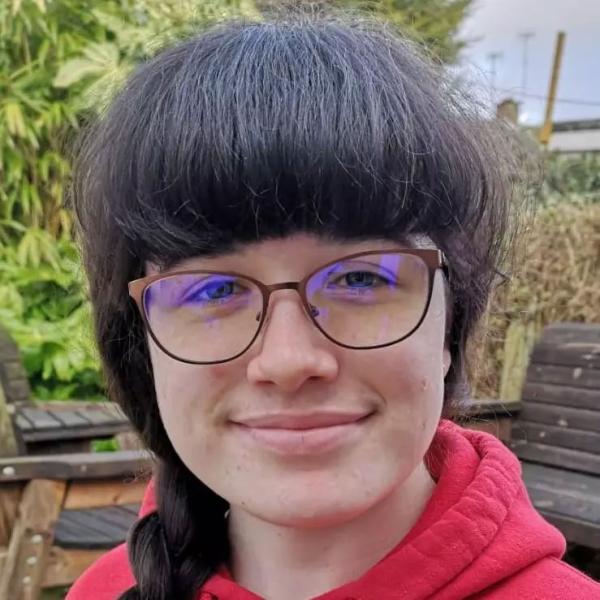
I chose to do Physics with Astronomy because I have always loved learning about space and really enjoyed physics in secondary school.
Read more about Aoife Gallagher
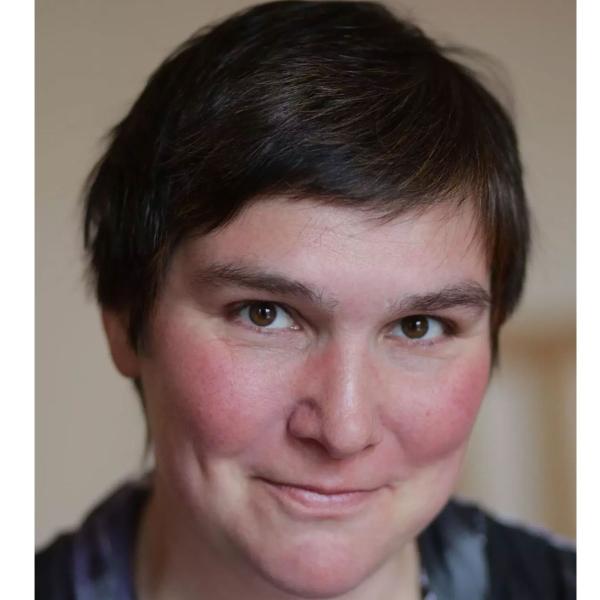
I try to teach my students that just doing the analysis is not interesting.
Read more about Dr Maria Chernyakova
Careers & Further Options
Careers
With your BSc behind you, you’ll find opportunities in a wide range of business, scientific and industrial sectors in the areas of physics as well as astronomy and space science.
Employers want people with technical knowledge and good written and oral communication skills and people who are capable of working well independently and in a team environment.
Successful completion of this Honours Bachelor Degree (NFQ Level 8) satisfies the current Teaching Council of Ireland subject curricular requirements for the teaching of physics at post-primary level.
Further useful materials and resources on the many interesting and diverse career opportunities available to physics graduates are available on the Institute of Physics website
- Research and development in astronomy/astrophysics and space science
- Meteorology
- Image processing and analysis (e.g. medical physics companies and organisations)
- Signal Acquisition Instrumentation
- Optical instrumentation/photonics design and validation
- Statistical Analysis
DCU graduates are highly sought after by employers. Our Graduates work in environments ranging from large multinationals to SMEs, family businesses and start-ups across every sector.
DCU Careers Service has a number of learning and development initiatives in place for our students, giving them the skills they need for a successful career path.
Entry Requirements
There is no direct entry to the programme via CAO. All entries to this programme are via DC175 Physics General Entry.
Applicants that have completed at least one year of study at NFQ Level 6, 7 or 8 at another institution may apply to continue their studies on a similar programme at DCU. There should be substantial overlap in content between the two programmes to be considered for a transfer. Results and other supporting documentation must be submitted to CAO by the closing date of 1st July. This is a competitive application process for a small quota of advanced entry places. Offers are made on a rolling basis until all places are filled. Early application is advised. Please note: Applicants should also consider applying through the appropriate route for first year entry to the programme they are interested in. This application process is only for advanced entry.
There is no direct entry to the programme. All entries to this programme are via DC175 Physics General Entry
For further information on international applications click here.
Course Structure
You will enter BSc in Physics with Astronomy via the Physics General Entry route (DC175), confirming your choice at the end of Year 1
In Years 1 and 2 you will learn the basic foundations of physics and the fundamentals of Space Science and Astronomy. In Years 3 and 4 you will study more advanced topics, such as Stellar Physics, Astronomical Techniques and Cosmology, where you will learn the modern theories of star formation and evolution, and the theory of multi-wavelength observations.
During the INTRA placement in Year 3 and working on the challenge-based astronomy related project in Year 4 you will have a chance to apply the skills you’ve learned to real-life problems under the guidance of professional astronomers.
How To Apply
There is no direct entry to the programme via CAO. All entries to this programme are via DC175 Physics General Entry.
There is no direct entry to the programme. All entries to this programme are via DC175 Physics General Entry. For further information on international applications click here.
There is no direct entry to the programme. All entries to this programme are via DC175 Physics General Entry.
Applications are made via the CAO Advanced Entry route which will open on the 06th November to the 1st July.
Please see Application Procedures or E-mail ugadmissions@dcu.ie.
There is no direct entry to the programme. All entries to this programme are via DC175 Physics General Entry.
Life On Campus
At DCU, our students can expect a unique campus experience. We are known for our excellent teaching and learning facilities, our active clubs and societies, and our great social and sporting facilities. All this makes DCU an exciting place to be.
DCU has three academic campuses; Glasnevin, St. Patrick’s and All Hallows (both in Drumcondra), all close to Dublin City centre.
They can be reached by public transport, Dublin Bus and Bus Éireann, with our Drumcondra campuses a ten minute walk from Drumcondra Train Station. Glasnevin is a 20 minute walk from St Patrick’s and All Hallows. They are also linked by Dublin Bus.
Each campus has a library (O’Reilly, Cregan and Woodlock Hall), study spaces, restaurants, and on-campus residencies. There are sports facilities on Glasnevin and St. Patrick’s, and there is a dedicated sports campus, St Claire’s, located near Glasnevin on the Ballymun Road.
DCU’s 19,000 students have access to exceptional teaching and learning facilities across our three academic campuses.
These include modern learning theatres, research centres, a new media and TV studio, radio/podcast studios, computer suites and advanced labs in the areas of Languages, Engineering, Physics, Chemistry and Biotechnology, as well as a Sports Performance centre and a training hospital ward. In 2021, we opened our first virtual reality ‘Leadership Lab’, which is located in our Business School.
We continue to improve and update our facilities. For example, construction of a new world-class STEM facility is underway on the Glasnevin campus. With capacity for an extra 3,000 STEM students, this facility will advance DCU’s international reputation for excellence in science and health, computing and engineering disciplines.
Studying in DCU isn’t just about course work. The university is rich in student life and activities.
There are more than 140 clubs and societies for students in DCU, with ‘Clubs & Socs’ days taking place on both the Glasnevin and Drumcondra campuses at the start of the academic year. They span everything from rugby to rock climbing, anime to jazz.
For many students, sport is an important part of the DCU experience. DCU’s Sports Complex boasts a 25 metre swimming pool, fitness centre gym, all-weather pitches and squash courts, as well as soccer, GAA and rugby pitches. DCU Dóchas Éireann, the university’s GAA club, is the largest third level Gaelic Games club in the country. Meanwhile, DCU Athletics has been Ireland’s highest achieving university club for many years. And DCU has dozens of other clubs to get involved in, from Archery to Weightlifting.
The Glasnevin campus is home to our purpose built, state-of-the-art student centre, The U, which serves the needs of a rapidly growing student body. Here, you will find the Student Leadership and Lifeskills Centre, performing arts and cultural spaces for students and the wider community, and the Entrepreneurship and Innovation Hub. Also located on our Glasnevin campus is The Helix, our renowned performing arts centre.
On our St Patrick’s campus, we have the Java Student Hub, a vibrant, warm and welcoming space where students can meet for coffee, play music, use the projector to watch events, or just relax. The walls of the Java Hub were designed based on the cultural history of St Patrick’s Campus, including the special references to the notable sporting history and history of the arts.
We have a number of academic, professional and social supports for students.
Student Advice & Learning Skills Centre - Offers a wide range of supports and services to students and advice
The Writing Centre - drop-in writing workshops for students through the academic year
Maths Learning Centre - provides maths support for students of all ability levels with maths modules
Student Learning - facilitate the transition from passive to active learning for students at DCU, by teaching study skills, nurturing critical thinking and building student confidence.
Careers work with students to help them on their professional journey into graduate employment.
Our student support team offers a comprehensive support programme, helping students make that all important transition into university life and focusing on building confidence and skills which are key to success at third level.

DCU Glasnevin Campus
FAQs
What is the ratio of lab-based activities to lecture-based learning?
In Year 1, every student takes 2 experimental lab modules and 1 module that includes a computer lab. In Year 2, all students take an electronics lab module and one or two physics lab modules, depending on the stream they choose. In Year 3 every student takes one lab module. In Year 4, there are no lab modules but the Fourth Year project often involves research in an experimental or computational lab.
Is DCU all one campus?
DCU is a multi campus university - the Glasnevin, St Patrick's and All Hallows campuses. The St Patrick's campus is where the Education courses are taught and some of the subjects from the BA Joint Honours degree. There is a 20-25 minute walk between the campuses but there are buses and bikes available to go between them also.
Click here to see maps of all of our campuses
If I'm studying on the St Patrick's campus, can I use the library and sports centre on the Glasnevin campus?
Yes, all facilities such as sports and accommodation are open for all DCU students to avail of.
Are there libraries in DCU and if they have wifi and work stations?
We have a brand new state of the art four floor library on our St. Patrick's Campus which complements the existing library on the Glasnevin campus. There is free wifi, work stations as well as desktop computers.
Does DCU provide accommodation?
DCU does have on-campus accommodation for undergraduate and postgraduate students, and you can find out more and apply via the Accommodation Office webpage.

